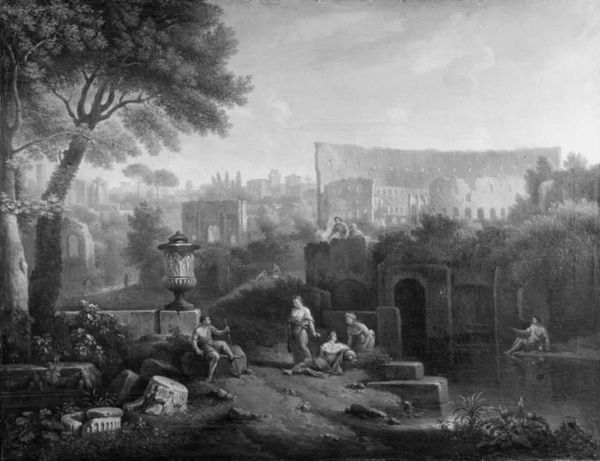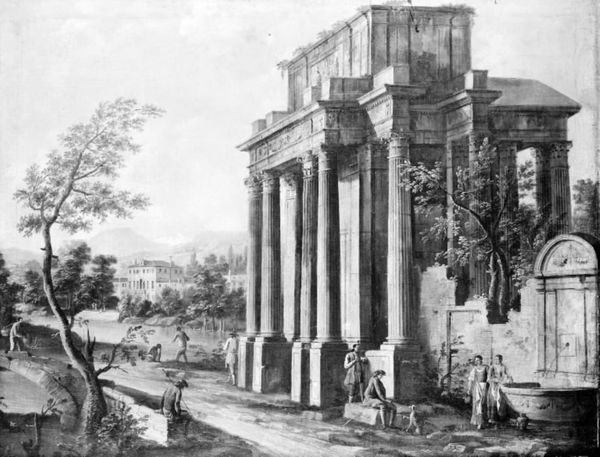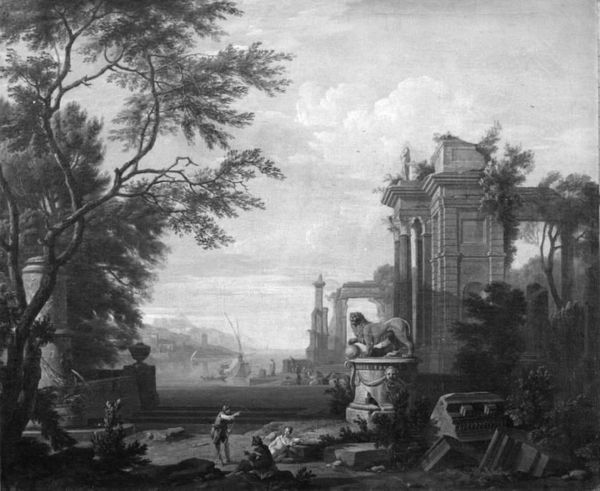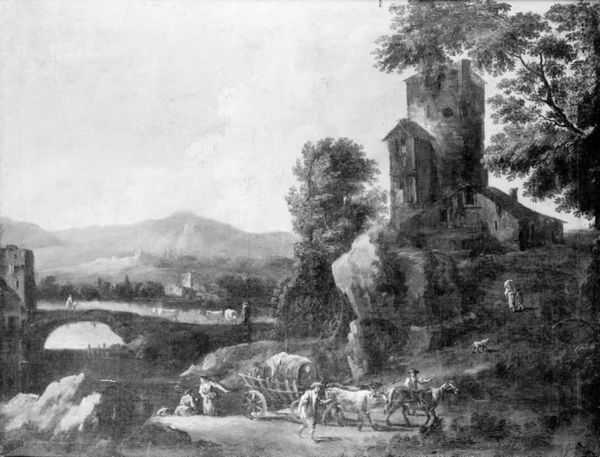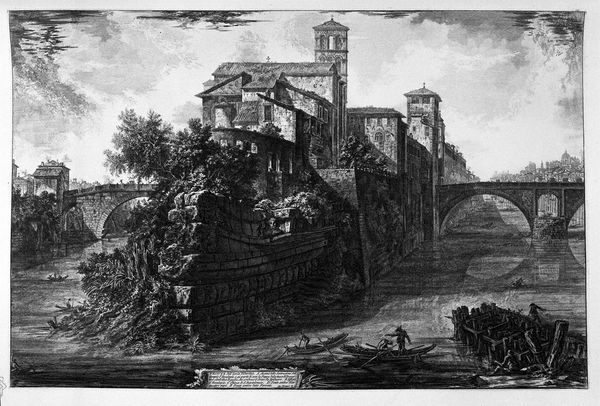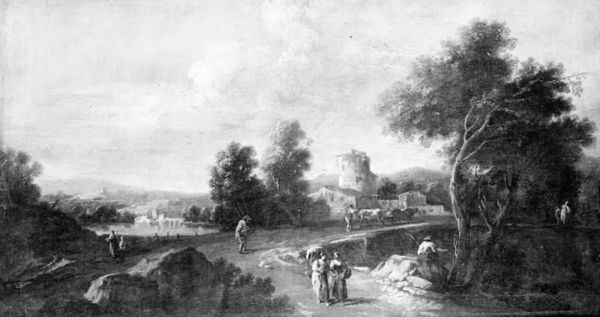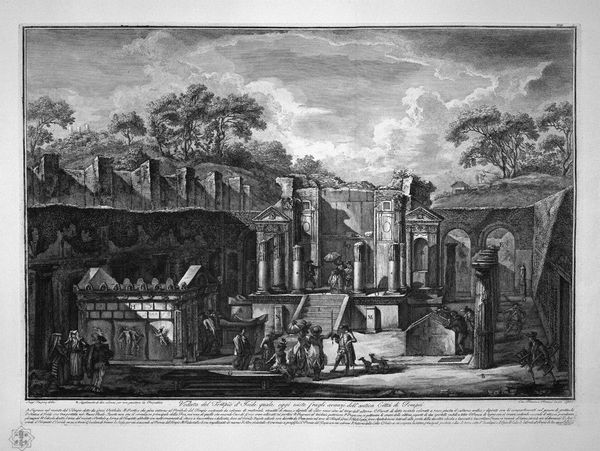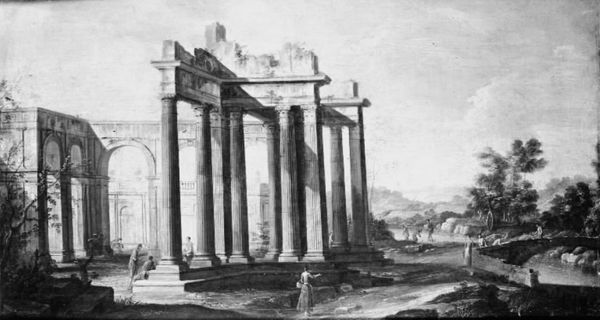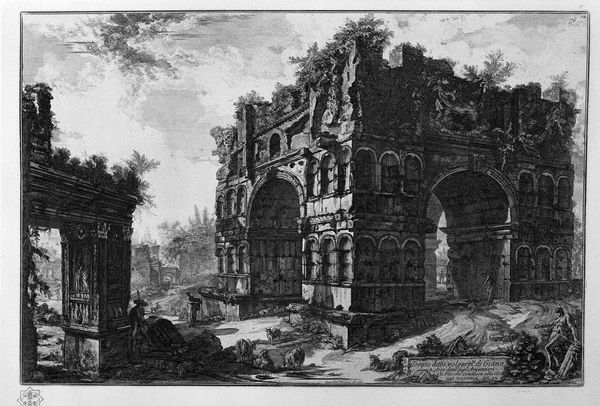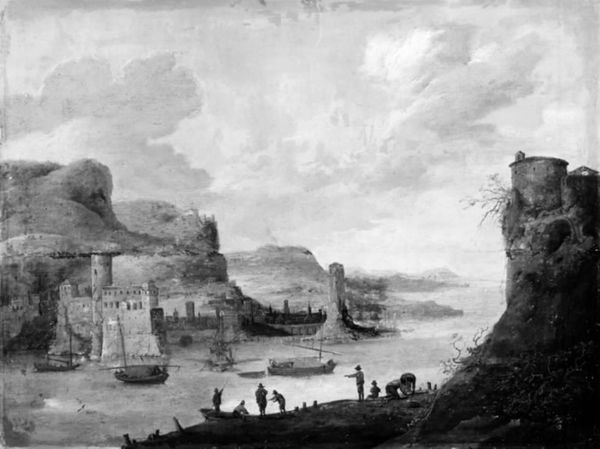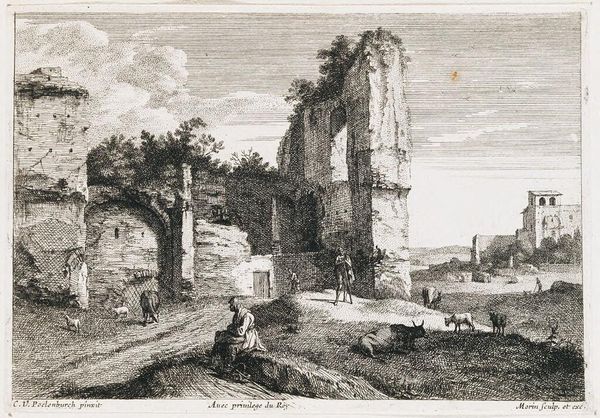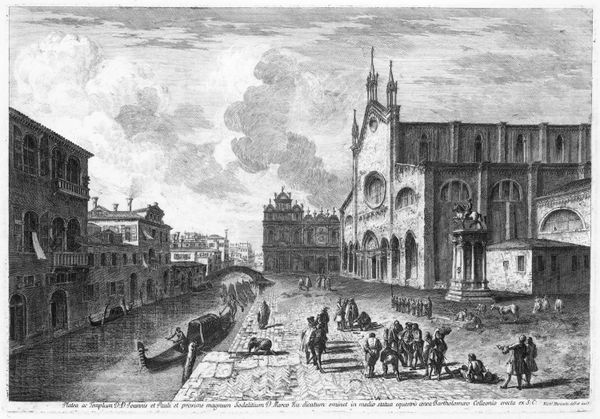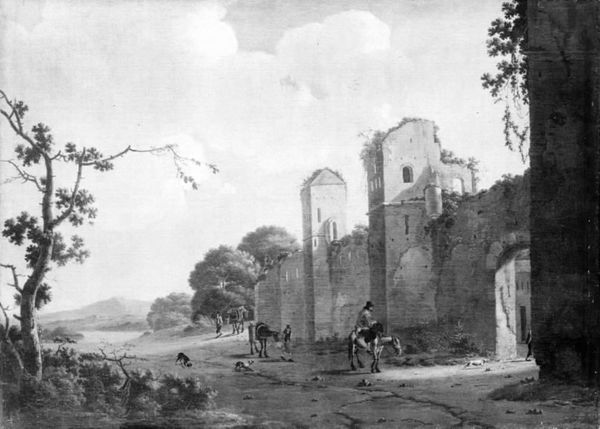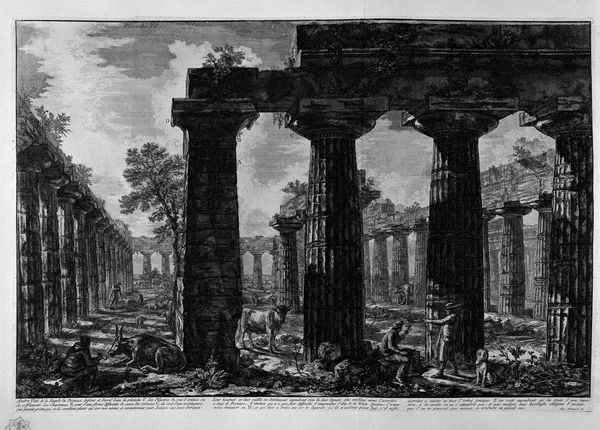
drawing, wood
#
drawing
#
baroque
#
countryside
#
landscape
#
landscape
#
wood
#
cityscape
#
history-painting
Dimensions: 40 cm (height) x 55.2 cm (width) (Netto)
Editor: So, this is Frans de Momper’s "View of Campo Vaccino in Rome" from the 1640s. It’s a drawing, looks like on wood, and it really strikes me as this interesting juxtaposition of grand ruins and everyday life. What’s your take? Curator: It's fascinating to consider how Momper, a Flemish artist, portrays Rome’s Campo Vaccino, or “cow field.” Notice how the Roman Forum, once the heart of a powerful empire, is now depicted as a grazing pasture. This shift reveals a specific European gaze towards classical antiquity, particularly in the 17th century. Does it suggest anything about the evolving perceptions of power? Editor: Hmm, I see what you mean. It's like the ruins have become part of the landscape, a backdrop for ordinary people and animals. Were these kinds of historical inaccuracies a statement, or just artistic license? Curator: These artists often sought to convey a symbolic narrative about time and the transience of power, and how new inhabitants repurpose monumental spaces. It challenges us to question how we commemorate our own public monuments and what the future may hold for them. Are we really immortalizing them? Editor: That’s such a sobering point. I always thought of historical painting as purely celebratory. Curator: Exactly. The ruins also became popular in art to become part of landscape paintings appealing to nobles looking to buy pieces representing "Grand Tours," with an emphasis on decline and reflection. Editor: Wow, I had no idea there was so much social commentary packed into what I initially saw as just a pretty landscape! It really does make you think about how future generations might see our own monuments one day. Curator: Precisely! The artist challenges our assumptions, forcing us to contemplate history, memory, and the cyclical nature of civilizations through the lens of artistic and societal influence.
Comments
No comments
Be the first to comment and join the conversation on the ultimate creative platform.
